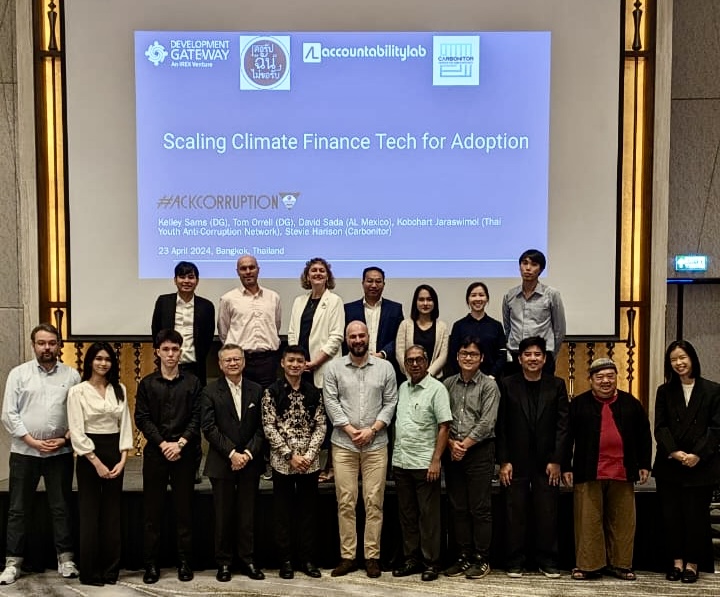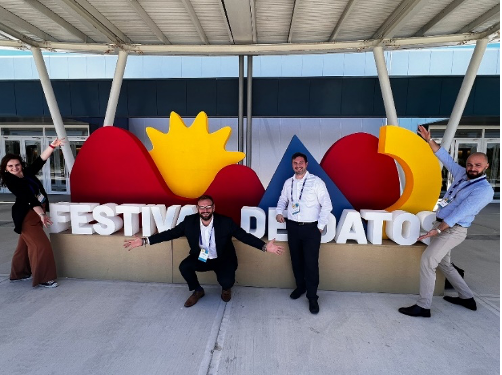Introducing AidData 2.0
Today, AidData launched its new and improved website, featuring more content and new data and marking an expansion in the program’s mission and scope. What began as a project to build a new kind of development assistance database has evolved into a broader initiative that aims to increase the accessibility and relevance of development finance information for a wide range of stakeholders. The new website highlights innovative projects to find new ways of gathering, managing, and visualizing development finance information, such as geocoding and crowdsourcing. Maps that show the geographical distribution of specific donor-funded activities offer a powerful way to help decision makers and citizens ask the right questions about aid allocation and effectiveness.
|  |
| *AidData Dashboards – coming soon* |
Those looking for data will find many new resources on the AidData site. [AidData Raw](http://www.aiddata.org/content/index/AidData-Raw “AidData Raw”) is a new repository of stand-alone datasets that have not yet been vetted for inclusion in the main AidData database. It includes geo-location, project evaluation, and non-DAC donor datasets, as well as links to the International Aid Transparency Initiative (IATI) registry of aid activities. AidData 2.0 also includes a new collection of replication datasets associated with influential aid allocation and effectiveness studies, and many other new [datasets for researchers](http://aiddata.org/content/index/Research/research-datasets “Datasets for researchers”). Soon, dashboards for key sectors will be added to the site, highlighting key trends and actors, and connecting activity-level data with other relevant resources.
In addition, the main AidData database has been updated to include the latest release of the [OECD’s Creditor Reporting System](http://stats.oecd.org/Index.aspx?DatasetCode=CRSNEW “OECD’s Creditor Reporting System”) data, and additional data sources, such as:
– African Development Bank (2009-2010)
– African Development Fund (2008-2010)
– Arab Fund for Economic & Social Development (2007-2010)
– India (2005-2010, Ministry of Finance & Ministry of External Affairs)
– Islamic Development Bank (1975-2008)
– Kuwait (2007-2009, Kuwait Fund for Economic Development)
– Latvia (2008-2010)
– Nigerian Trust Fund (2007-2010)
– Poland (2007-2010)
– Saudi Arabia (2005-2009, Saudi Fund for Development)
– United Arab Emirates (2008-2010, Abu Dhabi Fund for Development)

The new website was first previewed at an event on Nov. 4, organized by AidData, the [World Bank Institute](http://wbi.worldbank.org/ “World Bank Institute”), and the [Robert S. Strauss Center for International Security and Law](http://ccaps.strausscenter.org/ “CCAPS”) at the University of Texas at Austin. *[Putting Aid Data to Work: Using Better Information to Get Better Results](http://www.aiddata.org/content/index/about/events)* was a day-long event that brought policymakers, technologists, development practitioners, and researchers together to discuss the open data movement and how it is impacting development work. In his keynote address, Richard Manning—former chair of the OECD’s Development Assistance Committee—set the context for the day’s discussions. He noted that the transparency agenda was largely absent from the 2005 Paris Declaration on Aid Effectiveness framework, but that then-President of the World Bank James Wolfensohn had emphasized it at the 2003 Rome High Level Forum, and it has since reemerged as a major theme. Mr. Manning argued that “infomediaries,” such as AidData, will play a key role in making the deluge of public data more accessible and understandable.
|  |
| *Aleem Walji, World Bank* |
The discussion continued with a distinguished opening panel, including Catherine Weaver, Associate Professor, University of Texas and CCAPS Program as the moderator; and panelists Aleem Walji, Practice Manager, Innovation, World Bank Institute; Sheila Herrling, Vice President, Department of Policy and Evaluation, Millennium Challenge Corporation; David Wheeler, Senior Fellow, Center for Global Development; Lindsay Coates, Executive Vice President, Interaction; and Jean-Louis Sarbib, Chief Executive Officer, Development Gateway.
Mr. Walji talked about the need for “hyper-local” data—and that putting data in the public domain allows outsiders to find uses for it that the original institution may never have considered. Demand for the data may not be obvious ex ante, but following the example of Andrew Carnegie, he argued that “sometimes you have to build the libraries before you build literacy.”
Ms. Herrling and Ms. Coates discussed the broad range of stakeholders involved in making aid information more available, including donor agencies, legislatures, and civil society organizations. Dr. Wheeler gave practical examples of lessons learned from projects that sought to increase transparency, emphasizing that it is difficult to know beforehand who the audience for the information will be, but that demand surfaces during the process, and that project managers learn along the way how to adjust the project to meet the revealed needs of users. Mr. Sarbib concluded the panel discussion by summarizing key challenges facing those who aim to increase aid transparency: information needs to be complete, credible, and relevant, and sustainability is key—institutions must modify their behavior, not simply pursue one-off transparency initiatives.
|  |
| *Panel: Tracking Aid* |
Sessions throughout the day focused on ways of tracking aid information, monitoring climate change-related finance, and closing the feedback loop between donors and other aid stakeholders. A number of fascinating new initiatives to make aid information more useful as a tool for research, policymaking, and grassroots monitoring were demonstrated, and all presentations are [available online](/opening-panel-aid-transparency-innovation-and-open-data-movement), along with video recordings of each session.
Share This Post
Related from our library

The Future of Technology Governance and Global Development: Why DG Brought DataReady In-house
DG is excited to announce we now have more robust data governance advisory services with the recent integration of DataReady.

Letting the Sunshine in: Building Inclusive, Accountable, and Equitable Climate Finance Ecosystems
In April, DG, HackCorruption, and the Thai Youth Anti-Corruption Network hosted a roundtable in Bangkok to discuss climate financing. This blog explores the main takeaway: a multi-disciplinary and multi-stakeholder approach that prioritizes local contexts, inclusive governance, transparency, accountability, and equitable distribution of resources is essential to impactful climate financing.

Developing Data Systems: Five Issues IREX and DG Explored at Festival de Datos
IREX and Development Gateway: An IREX Venture participated in Festival de Datos from November 7-9, 2023. In this blog, Philip Davidovich, Annie Kilroy, Josh Powell, and Tom Orrell explore five key issues discussed at Festival de Datos on advancing data systems and how IREX and DG are meeting these challenges.